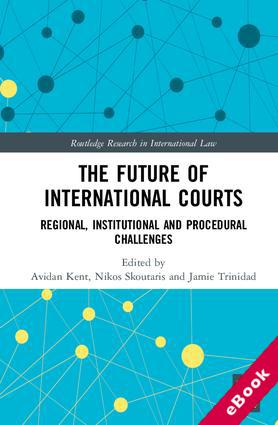
The device(s) you use to access the eBook content must be authorized with an Adobe ID before you download the product otherwise it will fail to register correctly.
For further information see https://www.wildy.com/ebook-formats
Once the order is confirmed an automated e-mail will be sent to you to allow you to download the eBook.
All eBooks are supplied firm sale and cannot be returned. If you believe there is a fault with your eBook then contact us on ebooks@wildy.com and we will help in resolving the issue. This does not affect your statutory rights.
The end of World War II marked the beginning of a new golden era in international law. Treaties and international organisations proliferated at an unprecedented rate, and many courts and tribunals were established with a view to ensuring the smooth operation of this new universe of international relations. The network of courts and tribunals that exists today is an important feature of our global society. It serves as an alternative to other, sometimes more violent, forms of dispute settlement.
The process of international adjudication is constantly evolving, sometimes in unexpected ways. Through contributions from world-renowned experts and emerging voices, this book considers the future of international courts from a diverse range of perspectives. It examines some of the regional, institutional and procedural challenges that international courts face: the rising influence of powerful states, the turn to populism, the interplay between courts, the involvement of non-state actors and third parties in international proceedings, and more. The book offers a timely discussion of these challenges, with the future of several international courts hanging in the balance and the legitimacy of international adjudication being called constantly into question. It should also serve as a reminder of the importance of international courts for the functioning of a rules-based international order.
The Future of International Courts is essential reading for academics, practitioners and students who are interested in international law, including those who are interested in the role international courts play in international relations.